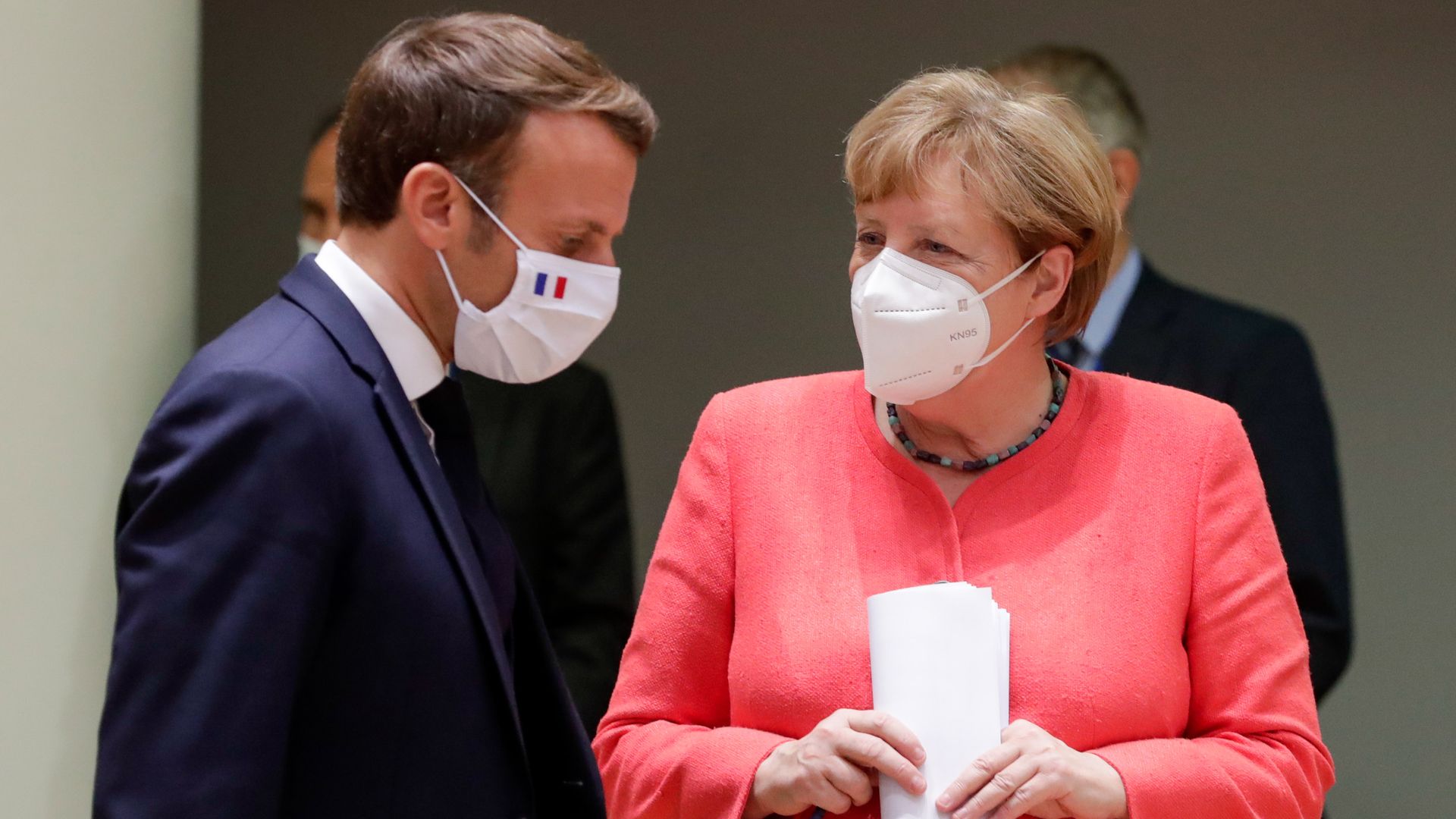Updated Jul 21, 2020 - World
EU leaders strike "historic" $857 billion coronavirus recovery deal
Add Axios as your preferred source to
see more of our stories on Google.

French President Emmanuel Macron and German Chancellor Angela Merkel during a last roundtable discussion following a four days European summit at the European Council in Brussels on Tuesday. Photo: Stephanie Lecocq/Pool/AFP via Getty Images
